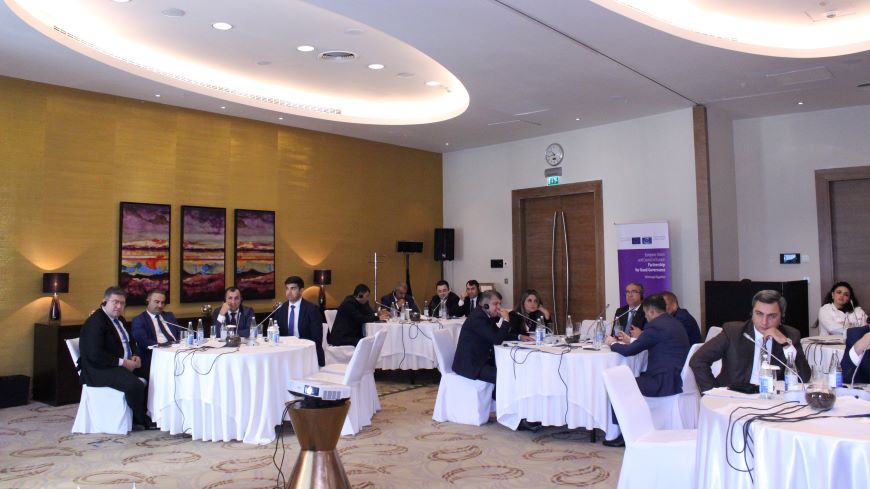Effectively addressing money laundering and confiscating criminal proceeds was the focus of the two-day workshop organised for judges, investigators, prosecutors, and financial intelligence practitioners. This workshop supports the training programme for judges and prosecutors at the request of the Academy of Justice of the Ministry of Justice of Azerbaijan. It underpins national authorities in preventing and combatting money laundering, thereby also contributing to the ongoing judicial reforms in the country. These interventions notably complement the country’s efforts to enhance the efficiency and accountability of the judicial system.
The role of domestic cooperation between law enforcement, financial intelligence, and the judiciary, and the importance of respecting safeguards in compliance with the core principles of the European Convention on Human Rights as crucial elements of criminal investigations and judicial proceedings were highlighted during the workshop.
Participants shared their experiences and views on the challenges faced during the prosecution and processing of money laundering offences and confiscation of proceeds linked with different forms of financial crimes. Discussions and practical exercises on evidence collection and analysis, prosecution, and reasoning of court decisions in money laundering cases were part of the training.
Fictional scenarios based on the local and international realities equipped the Azerbaijani delegates with adequate strategies and mechanisms to tackle money laundering better, leading to a more effective recovery of assets driven by criminal activities. Mechanisms for effective freezing, seizure and confiscation were discussed as tools to deter illegal activities, depriving criminals of illicit profits. Furthermore, the importance of beneficial ownership transparency was highlighted as an ultimate measure which is becoming significant internationally within the global fight against economic crime.
This event is part of the of the European Union and Council of Europe joint programme “Partnership for Good Governance”, co-funded by the European Union and the Council of Europe, and implemented by the Council of Europe, in the framework of the project "Preventing and fighting economic crime in Azerbaijan”.





